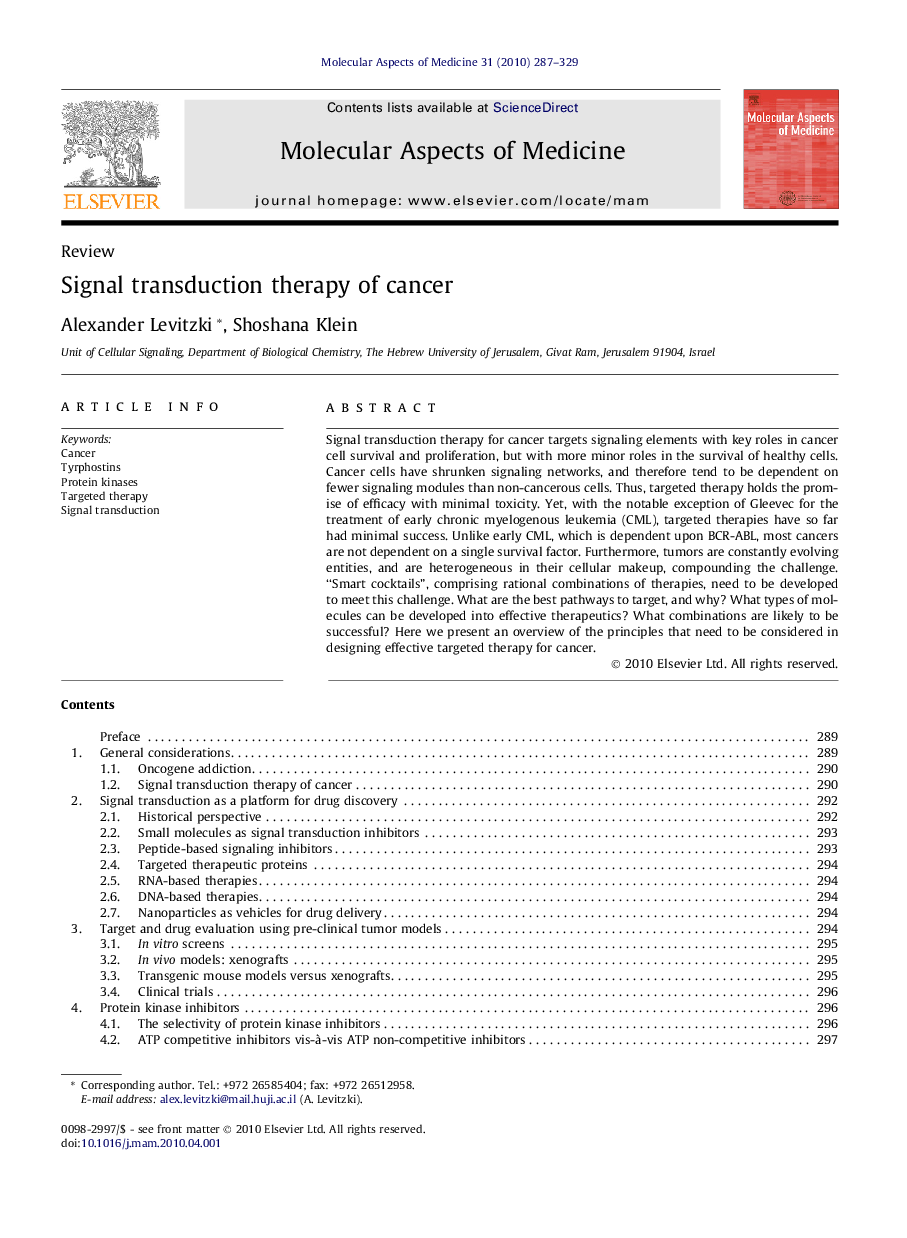| Article ID | Journal | Published Year | Pages | File Type |
|---|---|---|---|---|
| 1995715 | Molecular Aspects of Medicine | 2010 | 43 Pages |
Abstract
Signal transduction therapy for cancer targets signaling elements with key roles in cancer cell survival and proliferation, but with more minor roles in the survival of healthy cells. Cancer cells have shrunken signaling networks, and therefore tend to be dependent on fewer signaling modules than non-cancerous cells. Thus, targeted therapy holds the promise of efficacy with minimal toxicity. Yet, with the notable exception of Gleevec for the treatment of early chronic myelogenous leukemia (CML), targeted therapies have so far had minimal success. Unlike early CML, which is dependent upon BCR-ABL, most cancers are not dependent on a single survival factor. Furthermore, tumors are constantly evolving entities, and are heterogeneous in their cellular makeup, compounding the challenge. “Smart cocktails”, comprising rational combinations of therapies, need to be developed to meet this challenge. What are the best pathways to target, and why? What types of molecules can be developed into effective therapeutics? What combinations are likely to be successful? Here we present an overview of the principles that need to be considered in designing effective targeted therapy for cancer.
Related Topics
Life Sciences
Biochemistry, Genetics and Molecular Biology
Biochemistry
Authors
Alexander Levitzki, Shoshana Klein,
